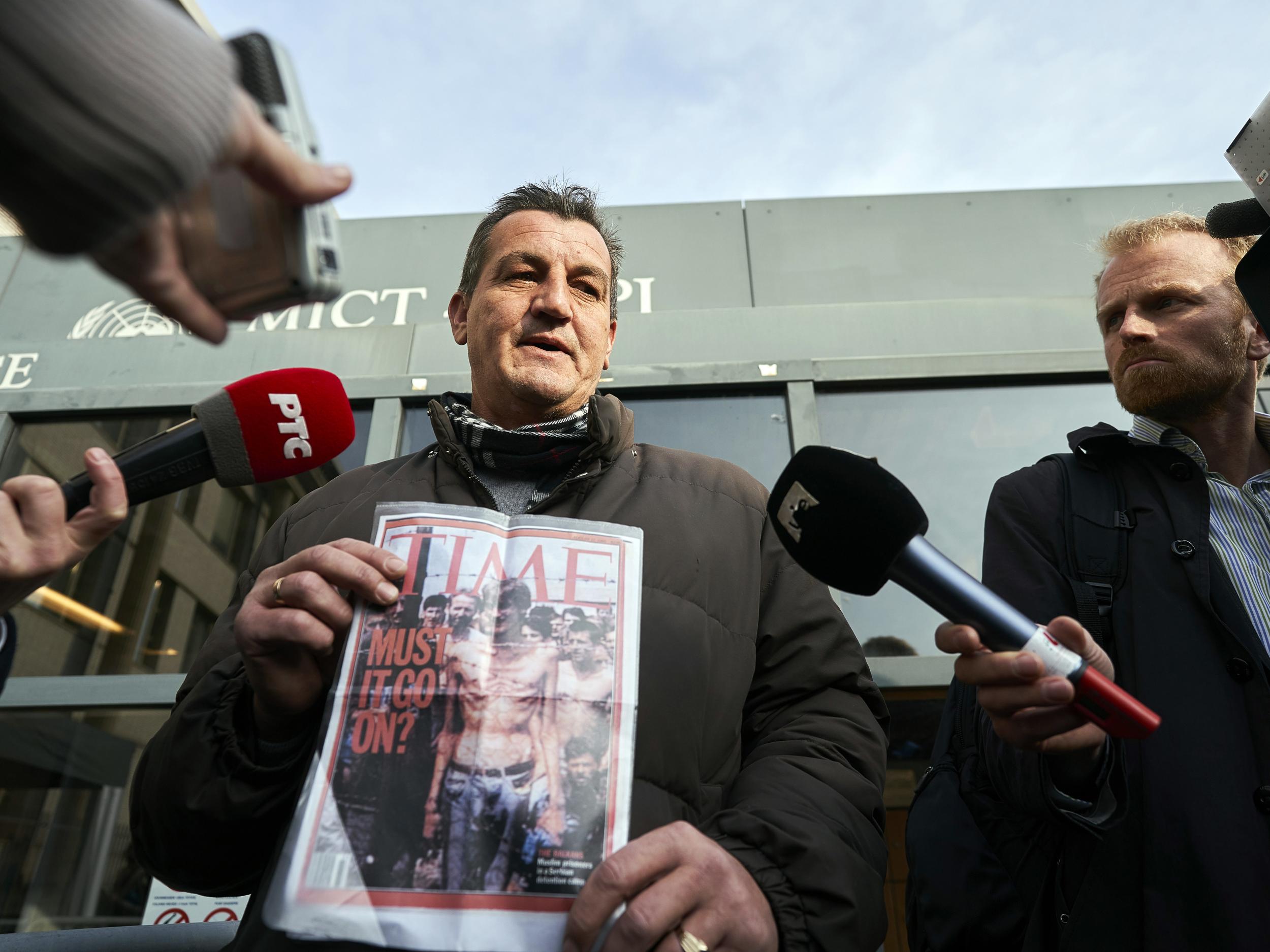Fikret Alic: Ratko Mladic's genocide conviction witnessed by subject of infamous Bosnian concentration camp photo 25 years later
'Justice has won,' says survivor

Your support helps us to tell the story
From reproductive rights to climate change to Big Tech, The Independent is on the ground when the story is developing. Whether it's investigating the financials of Elon Musk's pro-Trump PAC or producing our latest documentary, 'The A Word', which shines a light on the American women fighting for reproductive rights, we know how important it is to parse out the facts from the messaging.
At such a critical moment in US history, we need reporters on the ground. Your donation allows us to keep sending journalists to speak to both sides of the story.
The Independent is trusted by Americans across the entire political spectrum. And unlike many other quality news outlets, we choose not to lock Americans out of our reporting and analysis with paywalls. We believe quality journalism should be available to everyone, paid for by those who can afford it.
Your support makes all the difference.The image of Fikret Alic's emaciated figure as he stared from behind the barbed wire fence of Trnopolje concentration camp came to define the 1990s Bosnian war.
Twenty-five years later, Mr Alic was one of a number of survivors who waited outside the Yugoslav war crimes tribunal at The Hague to hear the verdict against the man they consider a symbol of their suffering.
Ratko Mladić – the former commander of the Bosnian Serb army who was dubbed the "butcher of Bosnia" – was convicted by a UN tribunal of genocide and crimes against humanity. He will be jailed for life.
"Justice has won, and the war criminal has been convicted," Mr Alic told reporters. "That means that example will prevent war crimes in the future. Justice is satisfied."
A brief altercation erupted when a man carrying a Serbian flag approached, saying he had come to show his support for Mladic. He was later removed from the area by security guards.
Displaying the photo of himself, which appeared on the front of TIME magazine in 1992, Mr Alic told reporters: "I am the one in this picture, I can testify to that crime that his general [Mladic] committed."
"Is he not ashamed to call him a hero?" he asked. "He should be ashamed!"
Mladić, who is now 75, was convicted of leading forces in the three-year siege of Sarajevo and during the 1995 massacre of around 8,000 Muslim men and boys in the east of Srebenica. The mass killing was Europe's worst since the Second World War.
"The crimes committed rank among the most heinous known to humankind," Presiding Judge Alphons Orie said when reading out the court's judgment.
The convictions were hailed as a victory for international justice by the court's prosecutor and rights groups.
UN High Commissioner for Human Rights Zeid Ra'ad Al Hussein called Mladic "the epitome of evil" and described the prosecution as "the epitome of what international justice is all about."
The verdict, he added, should serve as a warning to other perpetrators of atrocities "that they will not escape justice, no matter how powerful they may be nor how long it may take.
"They will be held accountable."
A three-judge panel at the court, formally known as the International Criminal Tribunal for the Former Yugoslavia, convicted Mladic of 10 out of 11 counts in a climax to a groundbreaking effort to seek justice for the wars in the former multi-ethnic federation.
Presiding Judge Orie read key parts of the judgment after ordering Mladic out of the courtroom for the final verdict over an angry outburst.
Survivors known as the Mothers of Srebrenica, clapped when the convictions were read out.
Mladic's son Darko dismissed the convictions, saying: "I'm not surprised".
"The court was totally biased from the start."
Mladic's son said judges obstructed defence lawyers in presenting evidence exculpating his father.
"This judgment is wrong, it does not achieve anything ... and will be an obstacle to future normal life in the region," he said.
Mladic's lawyers said they planned to appeal.
Associated Press contributed to this report
Join our commenting forum
Join thought-provoking conversations, follow other Independent readers and see their replies
Comments